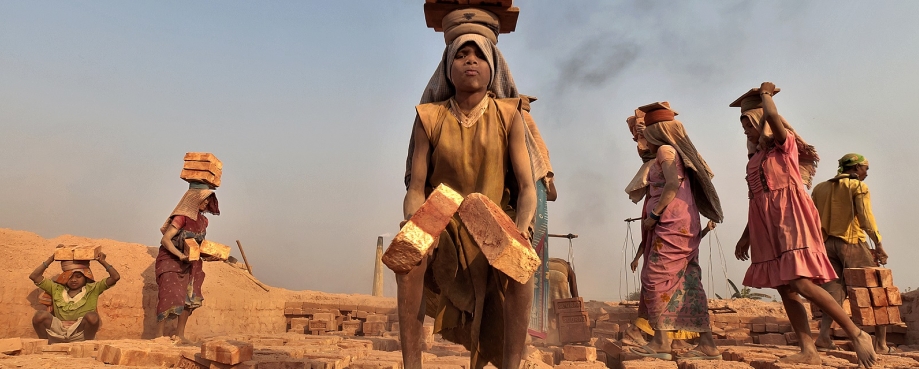
We contend that the need for proactive and collaborative leadership around modern slavery by brands - supported by trade unions, NGOs and governments - is greater than ever. This think piece is part of a series that reflects on some of the ethical trade issues being discussed at ETI’s 20th anniversary conference on responsible supply chains (31 October and 1 November).
The statistics never fail to shock. According to ILO estimates, worldwide 40.3 million men, women and children are trapped in some form of slavery. Most are in Africa and Asia, although there are said to be hundreds of thousands, even in Europe, including up to 13,000 victims of modern slavery in the UK.
While slavery is almost universally outlawed, modern slavery remains widespread.
The global nature of complex supply chains made up of companies competing on prices, profitability and lead times increases the risk of workers being exploited, and in the worst cases, forced into modern slavery, including human trafficking and forced, compulsory or bonded labour.
Greater responsibility from business
Almost any business can be affected by slavery. A joint ETI and Hult Business School study in 2016 found that 77% of companies believe there is a likelihood of modern slavery occurring in their supply chains.
“The research revealed that some companies are becoming more honest about the risks of forced labour and are increasingly taking responsibility to address it,” says Cindy Berman, ETI’s Head of Modern Slavery Strategy.
But, Cindy Berman believes that most brands and retailers are still largely concerned about the risks to their reputation if modern slavery is found.
A new approach
Companies that are more ethical, increasingly recognise that tackling the abuse of workers in supply chains demands a fresh approach.
They are making public commitments to improve working conditions and we are beginning to see specific policies, actions and programmes designed to uncover and address what is really happening in complex supply chains, especially in the lowest tiers where visibility is low and workers are most vulnerable.
Rather than relying on auditing to uncover instances of modern slavery, progressive brands acknowledge the need for innovation and collaborative action. “Competitive tensions can be a barrier, but one company taking action is just a drop in the ocean,” says Cindy Berman.
According to the ETI/Hult research, 83% of ethical companies see their peers, including direct competitors, as key partners and a source of advice and support.
Arguably, the biggest contributing factor to labour exploitation is when workers are unable to collectively negotiate terms and conditions of work and lack the freedom to leave abusive employers. Where trade unions operate, the risk of modern slavery falls dramatically.
Senior management buy-in is critical
Stronger, more effectively enforced regulation helps to create a level playing field between companies, forcing laggards to up their game and to stop claiming a competitive advantage from modern slavery.
That’s why ETI and its members fought so hard to include and strengthen the Transparency in Supply Chains clause in the UK Modern Slavery Act 2015. Such legislation is starting to focus the minds of senior executives.
“Board and senior-level buy-in makes all the difference in ethical trade because it drives better policies and ways of operating,” adds Cindy Berman, arguing that companies with strong leadership on modern slavery tend to be more commercially successful because they have greater visibility, oversight and control over their operations.
As part of ETI’s 20th anniversary conference on responsible supply chains (31 October and 1 November) being run in conjunction with business risks solution provider Elevate, there will be a session on new frontiers and modern slavery. Led by campaigner Baroness Lola Young of the House of Lords and Jeroen Beirnaert of the International Trade Union Confederation, participants will hear from workers who have experienced exploitation in a session that will spotlight what works and what doesn’t among the many business and government initiatives designed to address modern slavery. It will inspire businesses to rethink their approach to prevention and mitigation.
